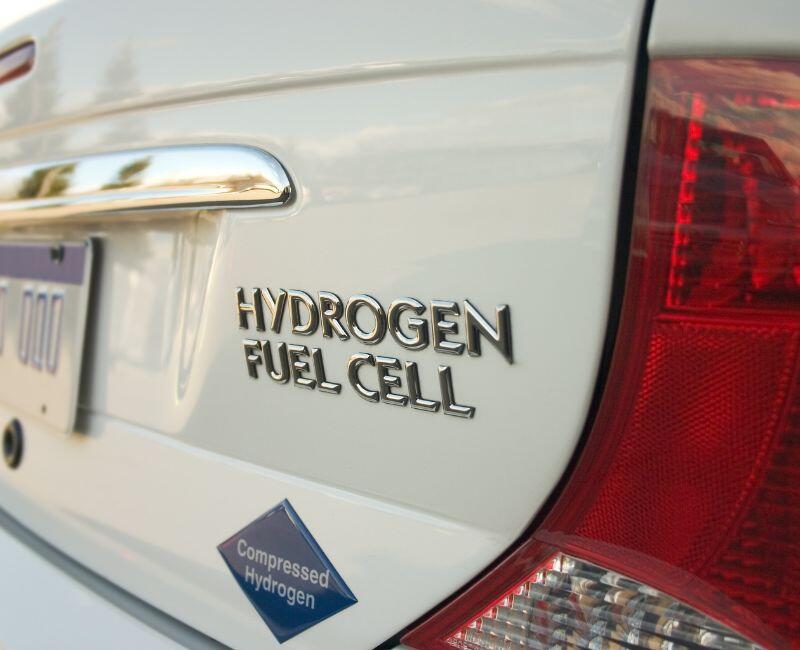As the world shifts toward sustainable mobility, two primary technologies are competing to shape the future of driving: electric vehicles (EVs) and hydrogen fuel cell vehicles (FCVs). Both offer zero-emission solutions, but each has distinct advantages and challenges. The question remains—will hydrogen or electric cars dominate the future of green transportation?
Understanding Hydrogen Cars
Hydrogen fuel cell vehicles (FCVs) use hydrogen gas to generate electricity, which then powers an electric motor. Unlike traditional internal combustion engines, hydrogen cars emit only water vapor, making them a clean energy alternative.
Advantages of Hydrogen Cars:
- Fast Refueling: Hydrogen cars can be refueled in just 3-5 minutes, similar to gasoline vehicles.
- Longer Range: Many hydrogen vehicles can travel over 400 miles on a full tank.
- Lighter than EVs: Hydrogen fuel cells are generally lighter than large EV battery packs, making FCVs a better option for heavy-duty transport.
- No Grid Dependency: Unlike EVs, hydrogen cars don’t rely on electricity grids for power, reducing strain on existing infrastructure.
Challenges of Hydrogen Cars:
- Limited Refueling Infrastructure: Hydrogen refueling stations are scarce compared to EV charging points.
- Expensive Production: Hydrogen extraction and storage are costly, making FCVs less affordable for the average consumer.
- Energy Conversion Losses: Hydrogen must be produced, stored, and transported, leading to higher energy losses compared to battery-electric vehicles.
Understanding Electric Vehicles (EVs)
Electric vehicles run entirely on battery power, storing energy in lithium-ion batteries that power an electric motor. EVs have seen rapid advancements in battery technology, making them increasingly accessible to consumers worldwide.
Advantages of Electric Cars:
- Lower Operating Costs: EVs require less maintenance than traditional cars due to fewer moving parts.
- Expanding Charging Infrastructure: Public charging stations are becoming more widespread, improving accessibility.
- Energy Efficiency: Electric vehicles convert over 85% of their energy into actual movement, compared to hydrogen cars, which lose energy during hydrogen production and conversion.
- Lower Initial Cost: While high-end EVs can be expensive, mass production is bringing prices down, making them more affordable.
Challenges of Electric Cars:
- Longer Charging Times: Even fast-charging stations take 30-60 minutes for an 80% charge, which is longer than hydrogen refueling.
- Limited Range for Some Models: While premium EVs offer 300+ miles of range, some budget-friendly models still have limited range.
- Battery Recycling and Sustainability Issues: Lithium-ion battery production requires rare minerals, and proper recycling solutions are still developing.
Which Technology is More Sustainable?
Environmental Impact
Both hydrogen and electric vehicles offer zero-emission driving, but their overall sustainability depends on how their energy is sourced.
- Electric Vehicles: When charged using renewable energy sources (wind, solar, hydro), EVs provide a near carbon-neutral driving experience.
- Hydrogen Vehicles: Hydrogen production requires energy-intensive processes. If derived from green hydrogen (produced via electrolysis using renewable energy), FCVs are an excellent clean-energy option. However, most hydrogen today comes from grey hydrogen, produced from natural gas, which still emits carbon dioxide.
Infrastructure and Scalability
- EVs have a significant lead in charging infrastructure, with thousands of public stations worldwide.
- Hydrogen refueling stations are expensive to build and maintain, making widespread adoption slower and more challenging.
Cost Considerations
- Electric vehicles are generally cheaper to produce and maintain compared to hydrogen cars.
- Hydrogen cars currently have higher production costs due to expensive fuel cell components and hydrogen storage technology.
The Future of Green Driving
While both technologies will likely play a role in the future of sustainable transportation, electric vehicles are currently leading due to their cost-effectiveness, expanding infrastructure, and energy efficiency. However, hydrogen may become a key player for heavy-duty transport, commercial fleets, and long-haul travel, where fast refueling and long-range capabilities are crucial.
What Should Consumers Choose Today?
- If you need a vehicle for daily commutes and urban driving, an electric vehicle is the most practical and accessible option.
- If you drive long distances frequently and have access to hydrogen refueling stations, an FCV may be a viable alternative.
- Both technologies will continue to evolve, with advancements in battery technology, hydrogen production, and infrastructure development shaping the future.
Maintaining Your Green Vehicle
No matter which sustainable vehicle you choose, proper maintenance is essential to ensure longevity and efficiency. Explore our selection of Car Maintenance products to keep your EV or hydrogen car in top condition.
The debate between hydrogen and electric vehicles will continue as technology progresses. While EVs currently have the upper hand in terms of adoption and infrastructure, hydrogen-powered cars offer unique benefits that could play a crucial role in future mobility solutions. The ideal future likely involves a mix of both technologies, working together to achieve a cleaner, greener transportation system for all.

